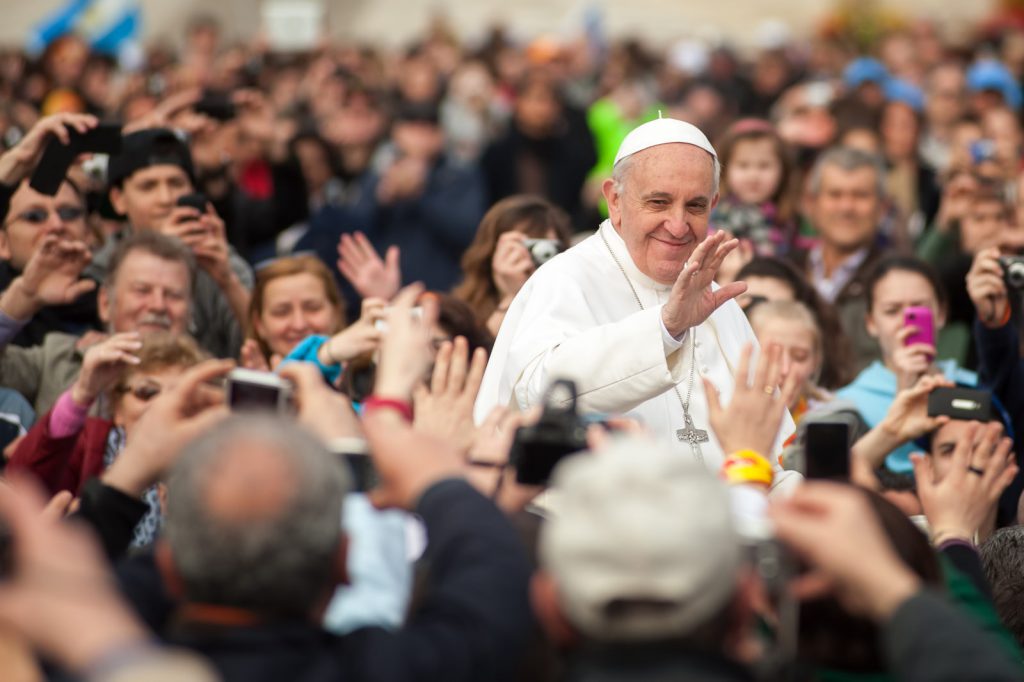
Published October 11, 2018
It is synod season, again, and the successors of the apostles gather in Rome at the behest of Peter. The synod is intended to be a moment of listening, discernment, and dialogue – a time of reflection upon the needs and challenges facing young people. It is also scandal season, again, and the bishops gathered with the pope have offered a variety of responses to the most pressing issue of the day.
Pope Francis has made it clear that he doesn’t want the abuse crisis to crowd out a discussion of the pastoral needs of young people. (Protection of minors is to be the focus of February’s summit of the presidents of the world’s episcopal conferences.) That’s understandable, but the topic of abuse is also unavoidable. As one of the English language groups at the synod put it, the crisis has “undermined the work of the Church in practically every way, precisely because it has compromised our credibility.”
Another working group lamented “the shattered trust, the trauma and lifelong suffering of survivors; the catastrophic failures in case management; the continued silence and denial by some of these awful crimes and sins.” Archbishop Anthony Fisher of Sydney, Australia offered a moving intervention, apologizing not only for abuse and its cover-up but for a long and telling list of ecclesiastical failings.
The credibility of the bishops is at a low ebb – and not just in the United States, but in many parts of the world. As Robert Royal highlighted earlier this week, two recent statements from Rome suggest that this reality is slowly sinking in. I won’t repeat Bob’s analysis; the statements contain some things edifying, some less so. But I do think things are crawling in a positive direction.
Rome still has declined to appoint an apostolic visitator to investigate McCarrick, but there will be a review of the McCarrick files and promises to “follow the path of truth wherever it may lead.” One may say that talk is cheap, and so it is, but this sort of talk is far better than the stultifying silence that preceded it.
Even Cardinal Ouellet’s fiery letter to Archbishop Viganò was, if nothing else, clarifying in some regard. It provided some of the first direct Roman responses to specific allegations made by Viganò: Yes, Benedict XVI placed some restrictions on McCarrick; No, they weren’t formal canonical sanctions.
The Ouellet letter also confirmed that, as aggrieved and betrayed as Americans may be, the Viganò affair has also left Rome feeling betrayed. American debates about the Viganò letters have mostly focused on the detailed allegations of corruption and misconduct and what those allegations do or don’t reveal about the cause and continuation of the crisis of clerical abuse. In short, Americans have mostly focused on who knew what and when.
But Rome has been fixated on something else: Archbishop Viganò demanded the resignation of Pope Francis. That act of disloyalty, not the worm-can of allegations Viganò opened and spilled about, is the lens through which Rome views the whole affair.
Whose lens is the “right” lens is a question for another time, but it is plainly the case that the two sides see the matter very differently. Both sides feel blind-sided. It’s critical for Americans, and especially for American bishops, to understand that rebuilding trust with Rome will be necessary if the bishops’ reforms are to prove successful. It doesn’t matter if this is fair; the effort to rebuild trust must be made.
Rome, for its part, must recognize that the good of the American flock, to say nothing of the credibility of the Church’s response to abuse globally, necessitates a full and thorough untangling of the webs of deception and corruption that have so marred the Church. That may mean Pope Francis will need to start listening to voices he has thus far been inclined to dismiss and stop listening to those who would portray the American episcopate as a pack of ideologues out to claim a papal scalp. That’s Ted McCarrick talk.
I’ve said before: If reform does not come from and through the pope and the bishops, it will not come at all. Christ loved his apostles and was willing to suffer for them. It’s also clear that there were times when he, while loving them, simply suffered them. If Rome and the American bishops need to learn to get along for our sake, we lay men and women also need to be willing to suffer them. Call it an imitation of Christ.
That doesn’t mean we play the fool. But the kind of hard-hearted cynicism, which permanent suspicion of our shepherds breeds, is deadly to the soul. We must cajole, and clamor, and sometimes criticize, but if we willingly make enemies of our spiritual fathers, we risk perdition.
Last month, Pope Francis gave a homily that, for many, was like salt in an open wound. He spoke of the Great Accuser who attacks bishops and spreads scandal. It’s worth returning to that homily, to this passage especially:
In these times, it seems like the “Great Accuser” has been unchained and is attacking bishops. True, we are all sinners, we bishops. He tries to uncover the sins, so they are visible in order to scandalize the people. The “Great Accuser,” as he himself says to God in the first chapter of the Book of Job, “roams the earth looking for someone to accuse.” A bishop’s strength against the “Great Accuser” is prayer, that of Jesus and his own, and the humility of being chosen and remaining close to the people of God, without seeking an aristocratic life that removes this unction. Let us pray, today, for our bishops: for me, for those who are here, and for all the bishops throughout the world.
Can anyone say that Pope Francis is wrong? Our bishops, our pope, are beset, for what they have done, and what they have failed to do. Besides our desire for truth, they need prayers. For their sake, and for ours.
© 2018 The Catholic Thing.
Stephen P. White is a fellow in Catholic Studies at the Ethics and Public Policy Center in Washington.








